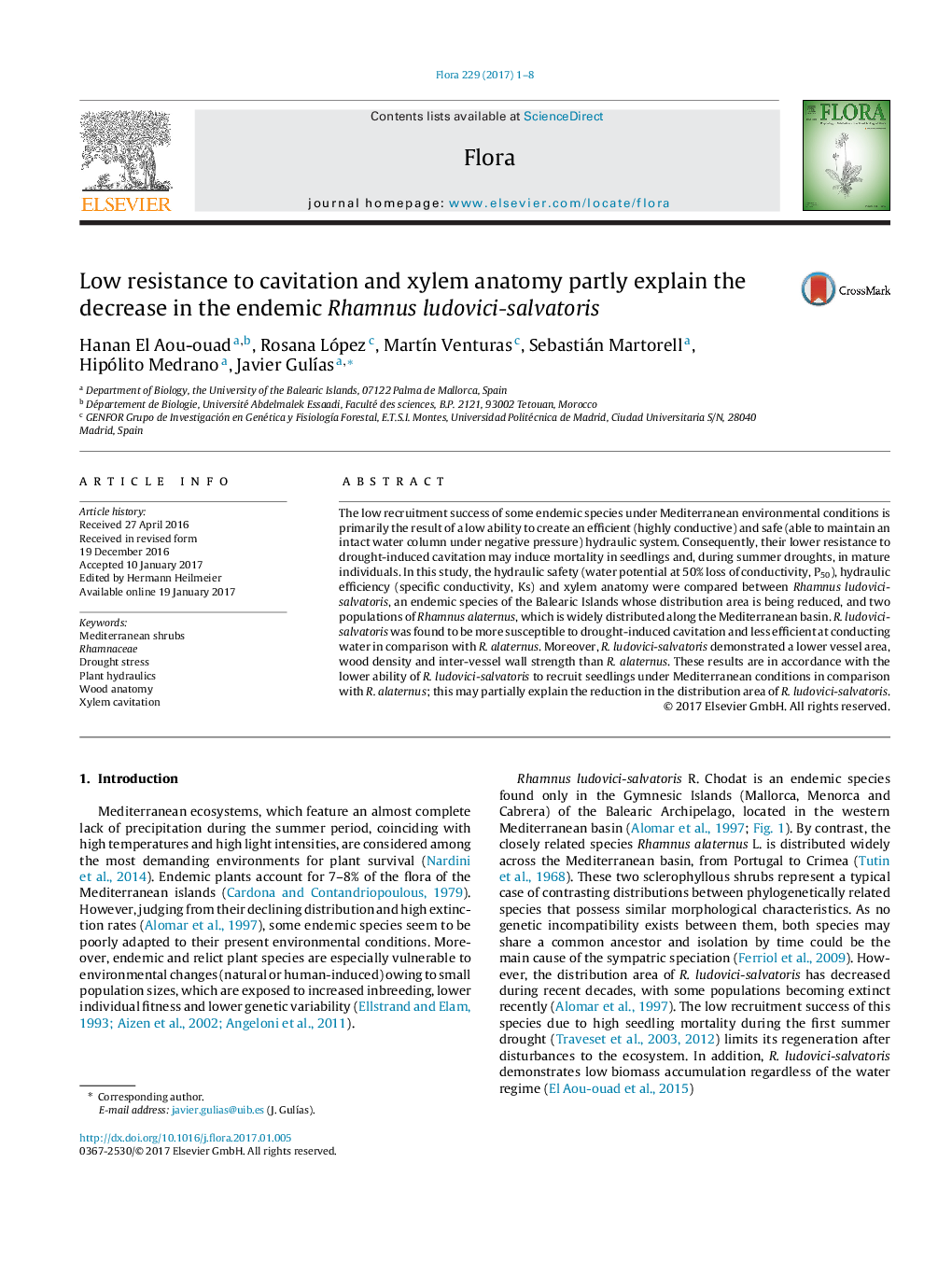| Article ID | Journal | Published Year | Pages | File Type |
|---|---|---|---|---|
| 5532351 | Flora - Morphology, Distribution, Functional Ecology of Plants | 2017 | 8 Pages |
â¢R. ludovici-salvatoris was more susceptible to cavitation than R. alaternus.â¢R. ludovici-salvatoris was less efficient at conducting water than R. alaternus.â¢Distribution decline of R. ludovici-salvatoris is partly explained by its xylem traits.
The low recruitment success of some endemic species under Mediterranean environmental conditions is primarily the result of a low ability to create an efficient (highly conductive) and safe (able to maintain an intact water column under negative pressure) hydraulic system. Consequently, their lower resistance to drought-induced cavitation may induce mortality in seedlings and, during summer droughts, in mature individuals. In this study, the hydraulic safety (water potential at 50% loss of conductivity, P50), hydraulic efficiency (specific conductivity, Ks) and xylem anatomy were compared between Rhamnus ludovici-salvatoris, an endemic species of the Balearic Islands whose distribution area is being reduced, and two populations of Rhamnus alaternus, which is widely distributed along the Mediterranean basin. R. ludovici-salvatoris was found to be more susceptible to drought-induced cavitation and less efficient at conducting water in comparison with R. alaternus. Moreover, R. ludovici-salvatoris demonstrated a lower vessel area, wood density and inter-vessel wall strength than R. alaternus. These results are in accordance with the lower ability of R. ludovici-salvatoris to recruit seedlings under Mediterranean conditions in comparison with R. alaternus; this may partially explain the reduction in the distribution area of R. ludovici-salvatoris.
